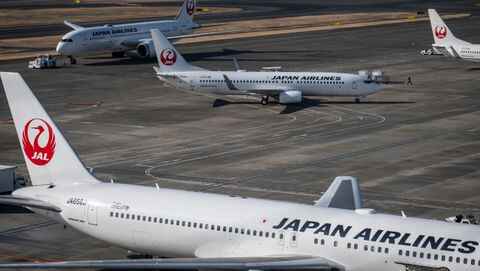Sales for all local and foreign flights leaving today have been halted by the airline.
Japan Airlines claimed to have identified and fixed the source of a hack that resulted in delays to both local and international flights.
Over a dozen flights were delayed at various Japanese airports on Thursday due to issues with the airline’s baggage check-in system, according to public broadcaster NHK. However, there were no significant disruptions or mass cancellations.
After All Nippon Airways (ANA), Japan Airlines (JAL) is the nation’s second-largest airline.
“We located the root of the problem and fixed it. In a statement on social media site X, JAL stated, “We are assessing the system recovery status.”
“Sales have been halted for flights leaving today, both domestic and international. “We sincerely regret any inconvenience this may have caused,” the post stated.
A JAL spokesperson informed AFP earlier on Thursday that the business had been the target of a cyberattack.
According to a statement from JAL, the network outage started around 2224 GMT on Wednesday.
“Then we temporarily isolated the router, a device for exchanging data between networks that was causing the disruption” , it continued.
Following the release of the news, JAL shares dropped as much as 2.5 percent in morning trading before marginally rising again.
Current cyberattacks
The airline is the most recent cyberattack to target a Japanese company.
In 2023, Japan’s space agency JAXA stated that it was probably breached by an unidentified cyberattack, but that no private data pertaining to satellites or rockets was obtained.
In the same year, a ransomware attack disabled one of Japan’s busiest ports, Nagoya Port, which was attributed to the Russian cybercrime group Lockbit.
According to reports, hackers spent up to nine months in 2023 infiltrating Japan’s National Center of Incident Readiness and Strategy for Cybersecurity (NISC), which is in charge of defending against cyberattacks.
According to the authorities, a hack caused a disruption at a Toyota supplier in 2022, forcing the top-selling carmaker to temporarily suspend operations at its domestic plants.
More recently, Niconico, a well-known video-sharing website in Japan, ceased operations in June due to a significant hack, according to its operator.






